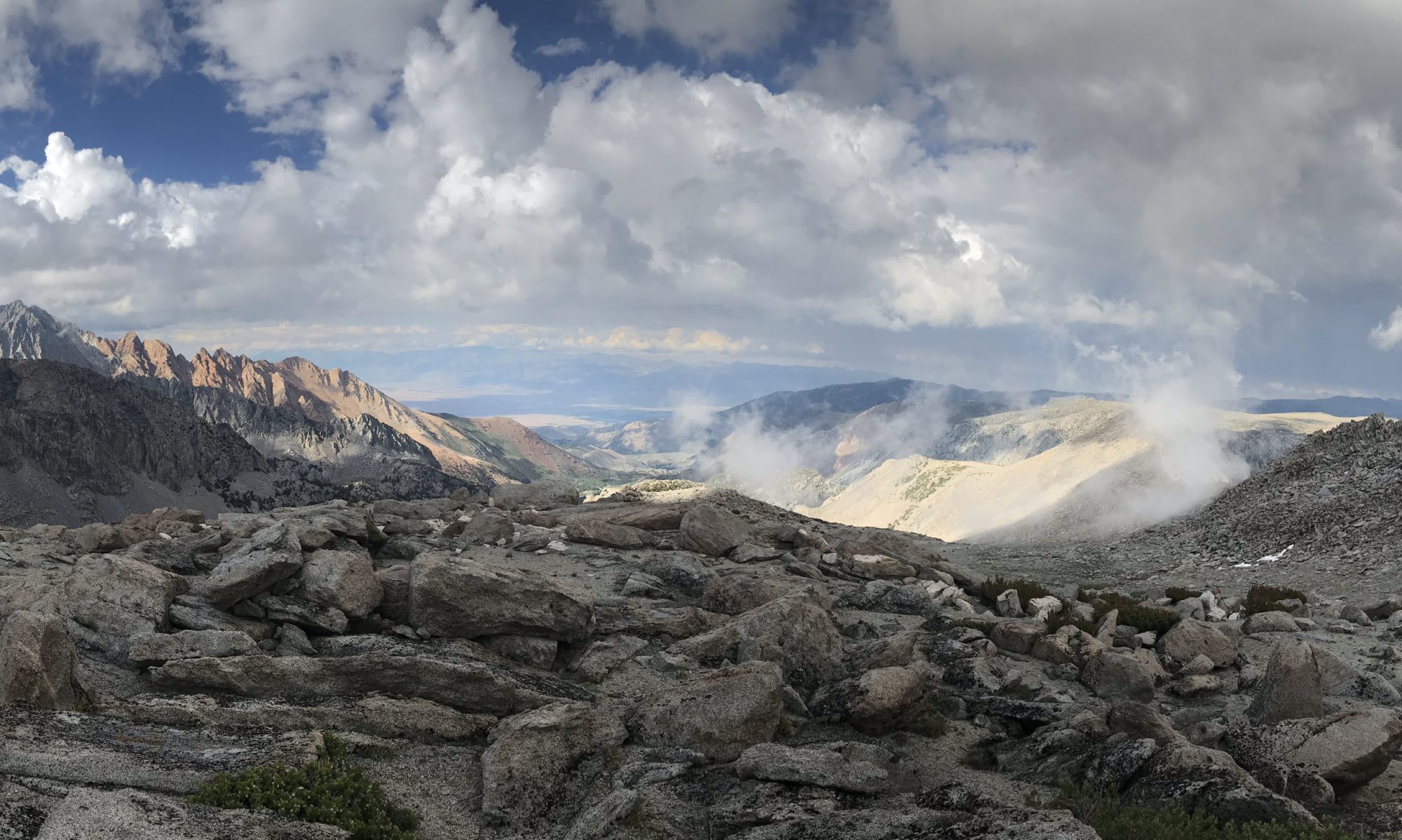(For more photos from Patagonia, see our gallery!)
If I could share one thing–anything-from my month of mountaineering in Patagonia, and people would actually pay attention, it would be this: chose to live, not survive.
I spent one month learning about leadership and mountaineering in an extra-remote region of an already-remote mountain range with NOLS Patagonia. Our group of fourteen faced challenges ranging from ice falls and crevasses to social dynamics and hygiene.
Spending most of our time in the “alpine” (above the treeline), the only other living things nearby were the occasional condor and logic-defying ice worms. Re-supplies were flown in by helicopter, and we navigated treacherous terrain using special gear (ropes, nuts, hexes CAMs, ice screws, ice axes, pickets, runners, webbing, carabiners, pulleys, crampons, cordelette, harnesses, ATCs, and probes, to name a few).

I entered the course thinking that I would grow into master of survival.
Through the long days, freezing blizzards, bizarre bathroom experiences, discussions, laughing and fighting, sweat and blood, salt rash and foot mold, I learned about survival’s deceptively-tricky compliment: living.

Survival is almost always chaotic. It never feels sustainable, and it is not fun for prolonged periods of time. Living is controlled, demonstrates a deeper understanding of yourself, and it requires more skill.
One litmus test of “living” is food. Taking the time to cook a meal, or have a friend cook the meal, makes a massive difference.
On days in “survival” mode, we ate nuts, dried fruit, sugary orange-flavored drink mix, and candy bars.
On days of “living,” we cooked! I learned how to use assorted powders, oats, cheese, grains, lentils, butter, dried fruit, nuts, textured soy protein, and spices to cook all sorts of meals. My personal favorites were lentil-stuffed samosas, hearty pancakes, cheesy fried pasta, homemade granola bars, pizzas, cinnamon rolls, and apple pie.

Cooking takes time and effort, and that’s not always an option. That’s when I learned the beauty of leftovers: make extra breakfast or pre-cook lunch to have an afternoon meal on the go. Maybe even isolate ingredients for the next meal to expedite things.
Albeit simple, this realization massively enhanced my life post-Patagonia. On my flight home, I packed a salad in a tupperware. On the long bus ride to the airport, I stored fruit and produce so I wasn’t limited to the chips and candy sold by street vendors.
Another sign of living, not surviving, is good hygiene.
Spending a month in the mountains without a proper shower seems daunting and filthy. In reality, it just requires commitment to the three pillars of hygiene: hands, butt, and feet. Any extra effort is welcome and goes a long way.
May this vignette from a very miserable moment vaguely explain my point:
A long day of glacier travel finally ended, and now it was dark. The wind was gusting upwards of 50 knots, blowing the falling snow sideways, and I was crouched like a bewildered gremlin behind a rock, heating water. I was barefooted, cursing my searing toes and red ankles that needed a warm bath. I had salt rash. My shoes were soaked and molding from two days of travel in foul weather. Everyone else was nestled in the tent, but I was torturing myself playing “catch-up.” The last two days I didn’t take the time to clean my feet, and now they were rebelling.
After attacking them with warm water and soap, I put socks on the searing knobs and went to bed. The next day, they were mildly better. After repeating this process, my feet actually healed. Now, during the day, I could enjoy the hiking and walking without feeling pain in every step.
Hopefully nobody gets salt rash in the front-country. Ever. But it’s quite easy to come home after a long day and feel too exhausted to shower or wash hands before a meal. Being appropriately clean is a hallmark of doing things well, even in desperate times.

Finally, when it comes to living instead of surviving, happiness must be a priority.
One massive hack I found for happiness is to appreciate little things. In Patagonia, these little things ranged from essential oils and hot drinks to ukulele and grip-strength trainers.
Yes, we climbed mountains and glaciers. Yet, my day-to-day happiness had little to do with those overarching goals; it was very easy to get lost in the big goals.
The herbal tea yerba maté epitomizes the importance of little things for me. Taking the time to boil water and save it in the thermos for yerba maté later was the difference between a decent day and a great day for me.

Maté was such a morale booster that I recently carried a kilogram of the herb on my trek through the Himalayas.
Pausing for the drink in the afternoon meant we could relax and look at the mountains. Ceremoniously having one person prepare the drink and pass it around meant it was an honor to serve one-another. It showed respect. The physical act of drinking from the same metal straw, “bombilla” in Spanish, brought friends closer and tore down any notion that others are too dirty to share with.
For others in the group, putting on essential oils at night, painting, or singing to ukulele had a similar happiness-facilitating effects.

Going forward in life, I will take the time to enjoy a hot drink or two throughout the day. More broadly, I will work to identify and pause for simple pleasures.
And for all of my future endeavors, I know that my trusty nalgene bowl, a bottle of soap, and bag of maté are all I really need to live.
…Plus everything required for survival.
–Andrew Buchanan

